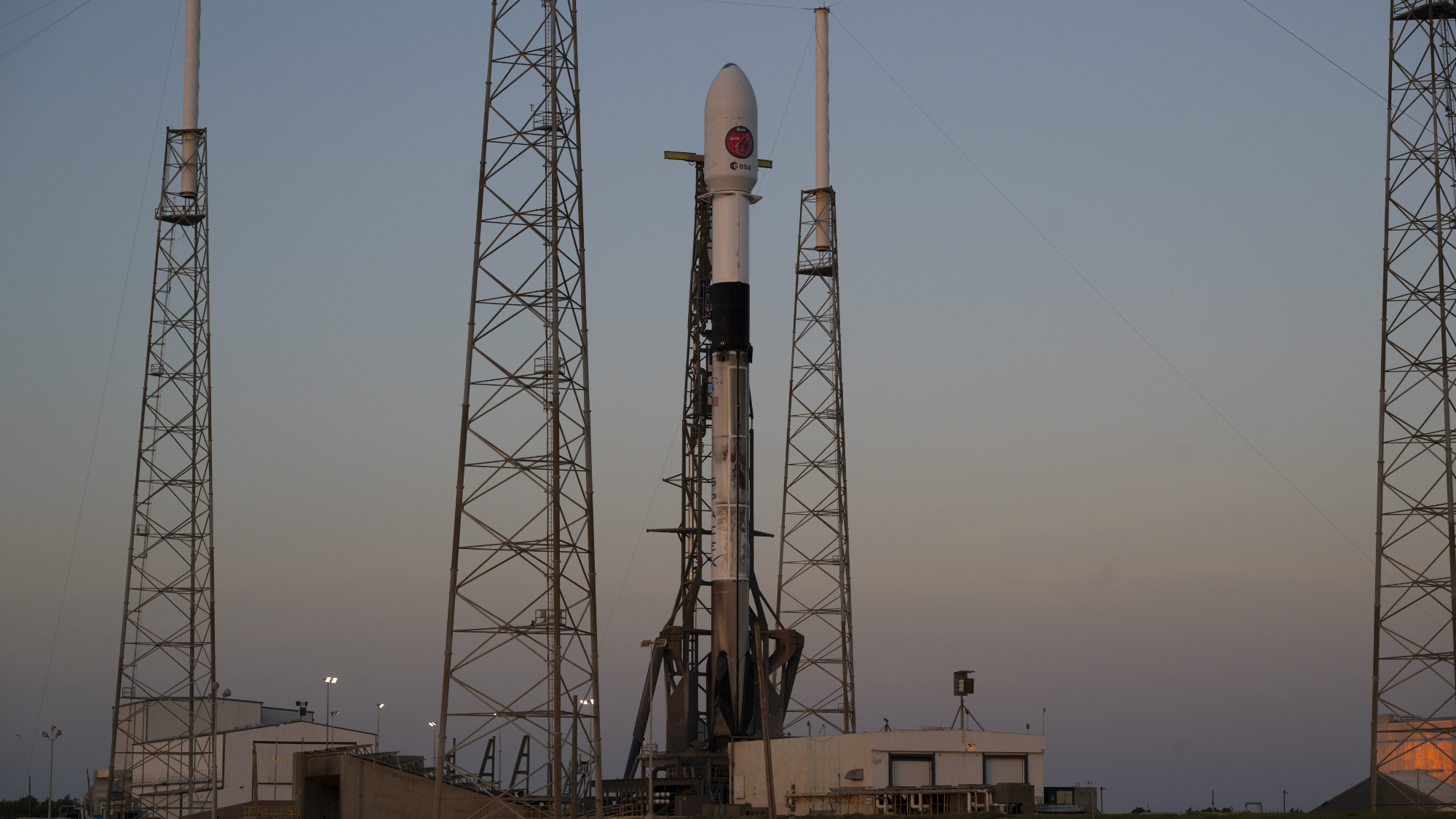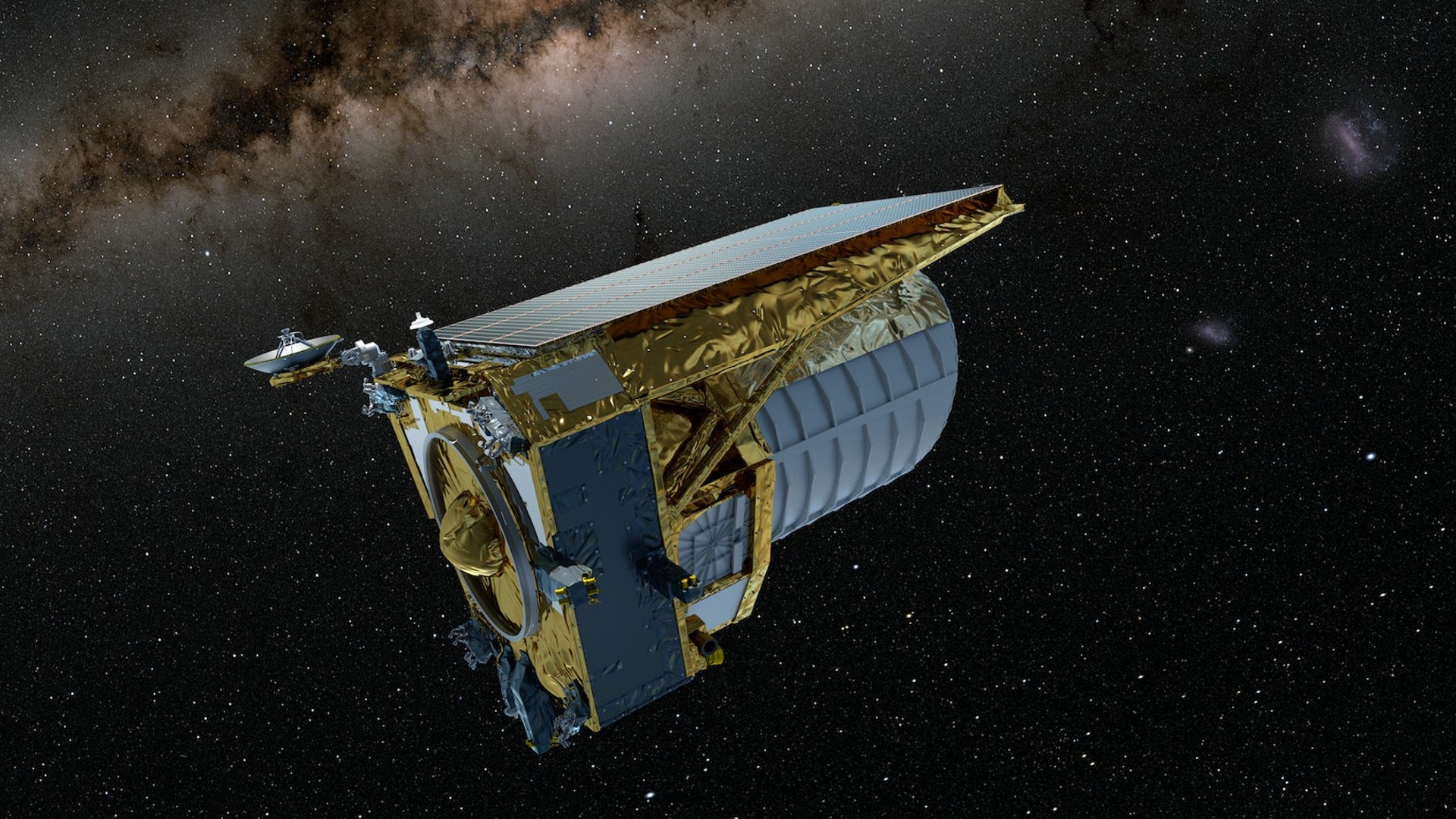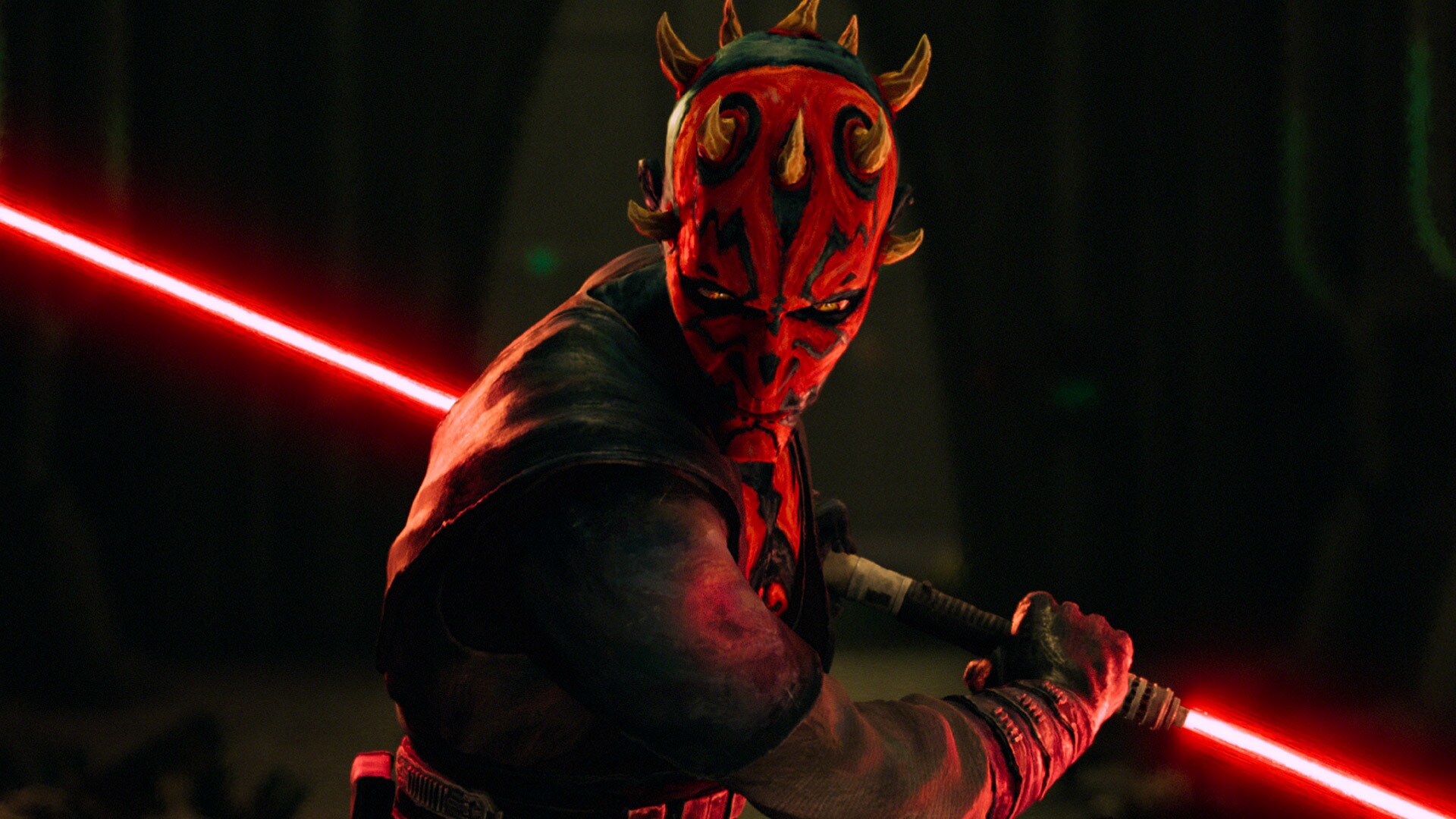Watch SpaceX launch Europe's new Euclid space telescope to probe 'dark universe' in this free livestream today (July 1)
Liftoff is scheduled for 11:11 a.m. ET on July 1.
Update for 12:15 pm ET: SpaceX has successfully launched the Euclid space telescope into orbit and deployed the dark matter hunting observatory to end the launch phase. The space observatory is now headed toward its final destination 1 million miles from Earth at Lagrange point 2. You can see launch video and photos and our wrap story here.
A European spacecraft will launch July 1 to explore the dark universe, and you can watch the liftoff live.
Euclid, a dark matter and dark energy hunter, is set to launch aboard a SpaceX Falcon 9 rocket from Florida's Cape Canaveral Space Force Station on July 1 at 11:11 a.m. EDT (1511 GMT). A live webcast from NASA Television will be carried here at Space.com for free starting at 10:30 a.m. EDT (1430 GMT) in the player above.
Roughly eight minutes after launch, the first stage of the Falcon 9 will land upon a drone ship in the nearby Atlantic Ocean.
Related: If dark matter is 'invisible,' how do we know it exists?
Euclid aims to spend six years scrutinizing the dark universe to better understand galactic evolution, the early history of the cosmos and why the expansion of the universe is accelerating.
It will take Euclid roughly eight months to get up to speed once it reaches space. The mission must spend about 30 days journeying to a distant spot known as the Earth-Sun Lagrange Point 2, roughly 1 million miles (1.5 million km) from our planet on the opposite side of the sun.
Breaking space news, the latest updates on rocket launches, skywatching events and more!
Euclid will then spend the next seven months going through a commissioning period, including testing out its imaging capabilities and instruments. Early images of notable targets will be released sometime in the coming months, both to drive public engagement and to test the probe's capabilities against ground observatories, officials have said.
Euclid is a survey mission, meaning that it will periodically move its telescope (and two instruments) in different directions to capture large swaths of the sky. It will thus serve as a complementary mission to space telescopes that look at small spots of the universe in high detail, such as NASA's James Webb Space Telescope.
Dark matter and dark energy are not directly visible in wavelengths of light, but astronomers can discern their effects on other objects. A notable example is gravitational lensing. This phenomenon occurs when a big object, like a galaxy, bends the light of stars or other bodies in the background due to its immense gravity. Gravity is in large part influenced by the mass and extent of dark matter.
Elizabeth Howell will travel to Florida to cover Euclid's launch under co-sponsorship by Canadian Geographic magazine and Canada's University of Waterloo. Space.com has independent control of its news coverage.

Elizabeth Howell (she/her), Ph.D., was a staff writer in the spaceflight channel between 2022 and 2024 specializing in Canadian space news. She was contributing writer for Space.com for 10 years from 2012 to 2024. Elizabeth's reporting includes multiple exclusives with the White House, leading world coverage about a lost-and-found space tomato on the International Space Station, witnessing five human spaceflight launches on two continents, flying parabolic, working inside a spacesuit, and participating in a simulated Mars mission. Her latest book, "Why Am I Taller?" (ECW Press, 2022) is co-written with astronaut Dave Williams.


